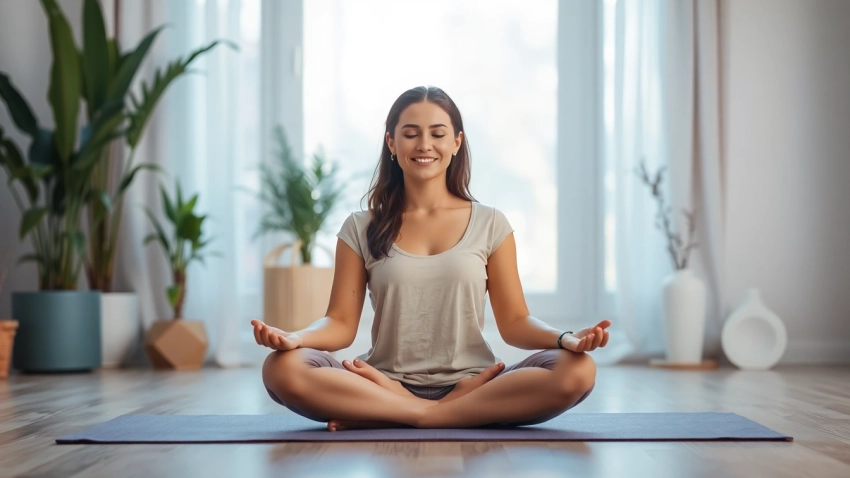
Effective Strategies for Dealing with Anxiety and Enhancing Well-being
Understanding Anxiety and Its Impact
Anxiety, often misunderstood and frequently trivialized, is a pervasive human experience that can affect individuals from all walks of life. It can manifest in various forms and intensities, impacting daily functioning, relationships, and overall well-being. Understanding anxiety is the first step toward dealing with anxiety effectively. This guide aims to explore the nature of anxiety, its symptoms, and the importance of addressing this mental health concern.
Defining Anxiety and Its Types
Anxiety is a natural response to stress, characterized by feelings of tension, worry, and physical changes such as increased blood pressure. It becomes problematic when it is excessive or persistent, leading to various anxiety disorders. Major types of anxiety disorders include:
- Generalized Anxiety Disorder (GAD): Characterized by chronic, excessive worry about various aspects of life.
- Panic Disorder: Involves recurrent, unexpected panic attacks, leading to a fear of future attacks.
- Social Anxiety Disorder: This disorder leads to intense fear of social situations and interactions.
- Specific Phobias: Involves an irrational fear of specific objects or situations.
- Obsessive-Compulsive Disorder (OCD): Characterized by intrusive thoughts and compulsive behaviors.
- Post-Traumatic Stress Disorder (PTSD): A condition triggered by traumatic events, involving severe anxiety and flashbacks.
Common Symptoms and Triggers of Anxiety
Anxiety symptoms can be both psychological and physical. Common psychological symptoms include:
- Constant worrying
- Difficulty concentrating
- Restlessness or feeling on edge
- Fatigue
- Irritability
Physical symptoms often include:
- Rapid heartbeat
- Shortness of breath
- Muscle tension
- Sleep disturbances
- Gastrointestinal problems
Common triggers of anxiety may vary significantly from person to person, but they often include:
- Traumatic events
- Life changes such as job loss, relationship issues, or financial problems
- Chronic health issues
- Substance abuse or withdrawal
- Stressful situations like exams or public speaking
The Importance of Addressing Anxiety
Addressing anxiety is crucial not only for individual health but also for enhancing life quality. Unmanaged anxiety can lead to a range of consequences, including depression, substance abuse, and other physical health issues. By confronting and treating anxiety, individuals can improve their emotional well-being, build resilience, and foster healthy relationships. Early intervention and appropriate strategies are essential to preventing anxiety from escalating and interfering with daily life.
Holistic Approaches to Dealing with Anxiety
As more people seek alternatives to traditional medicine, holistic approaches offer promising avenues for managing anxiety. These methods focus on the whole person, incorporating physical, emotional, spiritual, and social well-being.
Mindfulness Techniques for Stress Relief
Mindfulness emphasizes being present in the moment and can significantly help in dealing with anxiety. Techniques include:
- Meditation: Regular practice of meditation can calm the mind, promoting relaxation and reducing anxiety.
- Deep Breathing Exercises: Practicing deep breathing helps in mitigating acute anxiety. Techniques such as diaphragmatic breathing induce relaxation, helping to lower heart rates and anxiety levels.
- Progressive Muscle Relaxation: This involves systematically tensing and then relaxing muscle groups to reduce physical tension and stress.
The Role of Exercise in Managing Anxiety
Regular physical activity is a powerful remedy for anxiety. Research shows that exercise releases endorphins, the body’s natural mood lifters. Here are some effective forms of exercise:
- Cardiovascular Exercise: Activities such as running, swimming, or cycling help improve mood and decrease anxiety levels.
- Yoga: This practice combines physical movement, controlled breathing, and meditation, making it an excellent tool for relaxation and stress reduction.
- Strength Training: Engaging in weight training can also improve emotional well-being, contributing to self-esteem and body image.
Nutrition and Its Effects on Anxiety Levels
Nutrition plays a crucial role in mental health; certain dietary choices can exacerbate or alleviate anxiety symptoms. Key nutritional factors include:
- Balanced Diet: A diet rich in whole foods, including fruits, vegetables, lean proteins, and whole grains can positively impact mood and anxiety.
- Omega-3 Fatty Acids: Found in fish, flaxseeds, and walnuts, these nutrients have shown benefits in reducing anxiety.
- Hydration: Dehydration can contribute to feelings of anxiety. Drinking sufficient water throughout the day is essential for maintaining mental clarity.
Therapeutic Methods for Dealing with Anxiety
In addition to holistic approaches, various therapeutic methods can provide significant relief for individuals struggling with anxiety. These include structured treatments provided by professionals.
Overview of Cognitive Behavioral Therapy (CBT)
Cognitive Behavioral Therapy is a widely used therapeutic approach that helps individuals identify and change negative thought patterns and behaviors contributing to anxiety. Principles of CBT include:
- Identifying Negative Thoughts: Recognizing distorted thinking patterns and reframing them into more realistic, balanced thoughts.
- Behavioral Activation: Engaging in activities that promote positive feelings and counteract avoidance behaviors associated with anxiety.
- Developing Coping Strategies: Learning problem-solving skills and relaxation techniques to manage anxiety triggers.
Exploring Medication Options for Anxiety Relief
In some cases, medication may be necessary to help manage anxiety disorders. Common categories include:
- Antidepressants: Selective serotonin reuptake inhibitors (SSRIs) and serotonin-norepinephrine reuptake inhibitors (SNRIs) are often prescribed to help regulate mood.
- Benzodiazepines: These medications can provide short-term relief from acute anxiety and are typically used on a limited basis due to their potential for dependence.
- Buspirone: An alternative to benzodiazepines, this medication is used for chronic anxiety without the dependency risks.
Integrating Support Systems in Treatment
Support plays a critical role in managing anxiety. Whether through family, friends, or support groups, social connections can provide emotional support and understanding. Strategies for integrating support include:
- Communicating Openly: Sharing feelings with trusted loved ones can alleviate feelings of isolation and provide relief.
- Participating in Support Groups: Connecting with others who understand anxiety can be incredibly therapeutic, providing a sense of community and shared experience.
- Seeking Professional Guidance: Counselors, therapists, and support groups can offer additional strategies and insights for navigating anxiety.
Practical Tips for Dealing with Anxiety Daily
Implementing practical strategies can assist individuals in their day-to-day dealing with anxiety. These tips encourage a proactive approach to managing anxiety.
Developing a Personal Self-Care Routine
A self-care routine tailored to individual needs is essential for maintaining mental health. Suggestions include:
- Setting Boundaries: Learn to say no to commitments that may create excessive stress.
- Engaging in Hobbies: Regularly set aside time for activities you enjoy.
- Creating a Balanced Schedule: Allocate time for work, leisure, physical activity, and rest.
Implementing Relaxation Techniques
Incorporating relaxation techniques into your daily life can significantly relieve tension. Consider these methods:
- Visualization: Imagine a peaceful scene or situation to promote a sense of calm.
- Mindfulness Meditation: Allocate time each day to sit quietly, focus on your breath, and clear your mind.
- Guided Imagery: Use apps or audio recordings designed for relaxation to help guide you through relaxing visuals and calming exercises.
Journaling for Emotional Clarity and Insight
Journaling can be an invaluable tool for processing emotions and tracking anxiety triggers. Tips for effective journaling include:
- Daily Entries: Write about your thoughts and feelings regularly to gain insight into your anxiety patterns.
- Gratitude Journaling: Documenting what you are thankful for can help shift focus from anxiety to positivity.
- Structured Prompts: Use prompts or guided exercises to encourage deeper reflection and clarity.
Community and Resources for Dealing with Anxiety
Accessing community support and useful resources can make a significant difference in managing anxiety. In doing so, individuals can strengthen their coping skills and find avenues for help.
Finding Support Groups and Online Communities
Support groups offer a space to connect with others facing similar struggles. Online forums can provide additional anonymity and flexibility. How to find the right support includes:
- Local Organizations: Research mental health organizations in your area that offer support groups.
- Online Platforms: Look for reputable online communities focused on mental health discussions.
Utilizing Mental Health Resources Effectively
Numerous reliable resources are available for individuals coping with anxiety. These can include:
- Educational Websites: Explore sites dedicated to mental health for informative articles, strategies, and news updates.
- Books and Workbooks: Many authors have provided thorough resources on managing anxiety and employing CBT strategies.
- Mobile Applications: Apps for meditation, relaxation, and mental health tracking can be useful tools in daily self-care routines.
The Importance of Professional Guidance
Seeking professional help can be a critical step for those struggling with anxiety. Benefits of professional guidance include:
- Expert Assessment: Professionals can help ascertain the severity of anxiety and develop a personalized treatment plan.
- Comprehensive Treatment Options: Professionals can provide access to both therapeutic and medication options.
- Ongoing Support: Professional guidance offers continuous support, making it easier for individuals to navigate challenges as they arise.












Leave a Reply